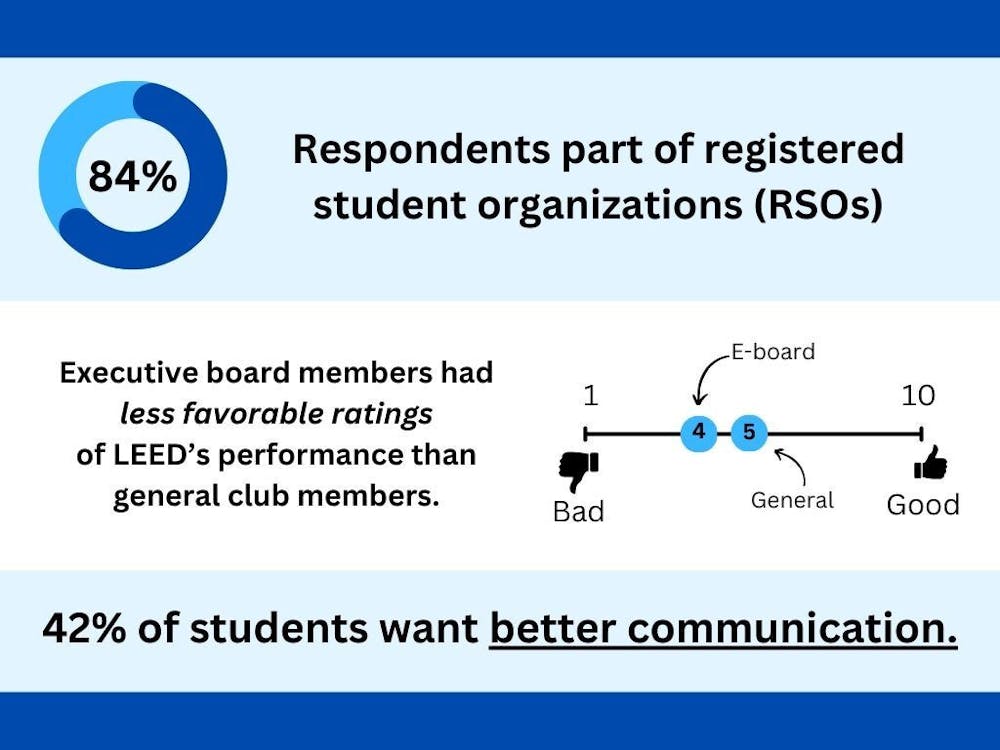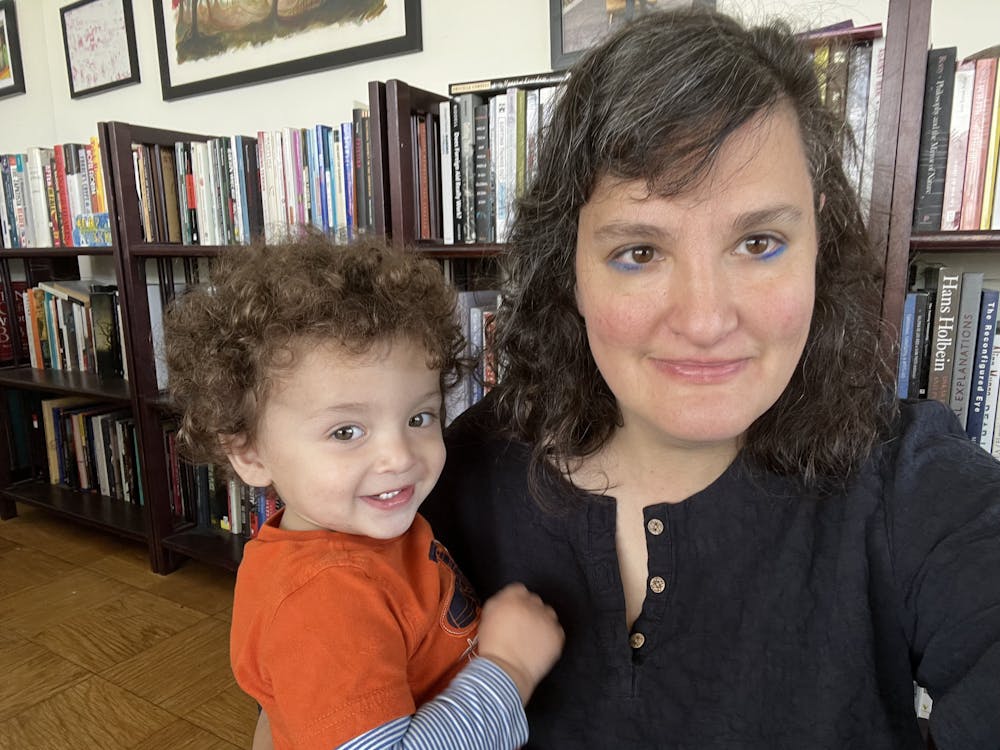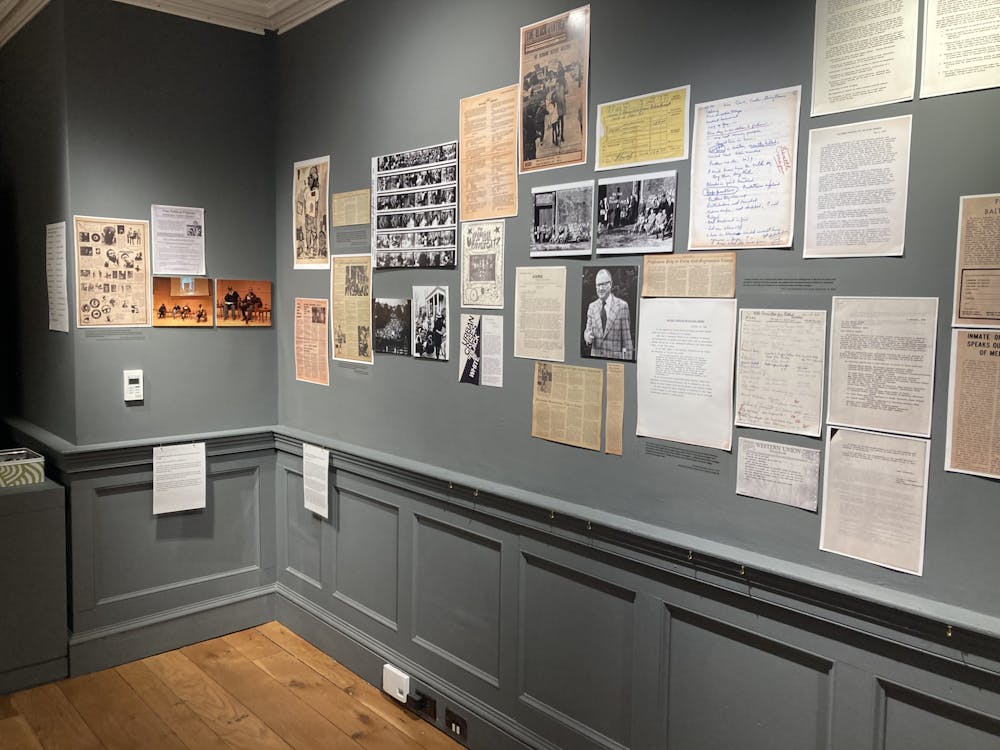The Student Government Association (SGA) addressed an appeal from the Korean American Students Association (KASA), who applied to be recognized as an official student group, in their weekly meeting on Tuesday at 7 p.m. They also discussed updated guidelines for the upcoming SGA elections from the Committee on Student Elections (CSE).
KASA had been unofficially operating with around 50 members for a year and a half. Though they applied for approval as an official student group during this academic year, KASA was denied on the basis that there was too much overlap in mission and target audience between them and the Korean Students Association (KSA).
KASA Education Director Aran Chang explained some of the reasons why SGA should recognize KASA as a student group.
“Over the years, many Korean Americans have lamented that [KSA] was not the community they were looking for,” Chang said. “It has come to the point where KSA cannot accommodate both [Korean and Korean-American students] reasonably.”
Chang said that KASA was created for students to have a place to discuss how the Korean-American culture fits into the society of the U.S. He added that though there will be some overlap and collaboration between KSA and KASA, they would function as fundamentally different organizations.
Since there were not enough SGA members to vote, Chang’s presentation was recorded and will be shown to absent members before the coming Tuesday’s meeting, when KASA will be voted on.
Following KASA’s presentation, sophomore Howard Senior from the CSE gave a presentation on the revamped student election guidelines.
A new policy introduced by CSE states that in order for a candidate to be elected to SGA, they would need a 51 percent majority. Several SGA members disagreed on the basis that members in the past have been elected with a lower percentage than 51. Junior Class President Noh Mebrahtu added that he was elected as freshman class president with a 40.41 percent plurality instead of a majority.
Without a 51 percent majority, Senior said that CSE would require a runoff election with the top two candidates running against each other. Senior Class Senator Joshua Bertalotto opposed the idea of runoff elections because of the additional strain it would put on the candidates.
Freshman Class Senator Evan Mays addressed how the low voter turnout during SGA elections would make a runoff election process more difficult.
“No one gets 51 percent — we just don’t have that many people voting,” he said. “We have to focus on getting more people to vote first and then possibly putting that clause in.”
Sophomore Class President Anthony Boutros added that because freshman class elections happen during October, conducting runoff elections would waste time that SGA members could instead spend doing their job.
“Yes, we signed up to run, but we also signed up to do our job here,” he said.
During the week prior to Tuesday’s meeting, two SGA senators resigned. Freshman Class Senator Nicolas Daurio’s resignation was announced through an email sent to the freshman class on Feb. 21. In a follow-up email on Feb. 25, Freshman Class President Sam Schatmeyer attached a form to be filled out by Saturday for candidates interested in the senator position.
The new freshman class senator will be selected in time for the SGA meeting on March 15.
The second class senator to resign was sophomore Meghna Kumar, whose resignation has not yet been announced.
The time of Tuesday’s meeting conflicted with the First-Year Banquet held at the FFC. Because of this, and over five absent members from other classes, SGA could not reach the minimum number of members required for voting. Executive Vice President AJ Tsang suggested discussing all the matters in question among the members who were present and then voting when the Banquet ended at 9 p.m.
Mebrahtu updated SGA on the executive board’s meeting with members of the administration including Krieger School of Arts and Sciences Dean Beverly Wendland and Whiting School of Engineering Dean Ed Schlesinger to discuss academic reform.
Mebrahtu said that SGA proposed making syllabi and average grades or scores for classes available online before registration to allow students to plan their schedules better.
“It’s very difficult for them to get professors on board with it because it’s very personalized,” he said. “Professors say they have issues with students signing up for their classes if they think they’re too difficult.”
Mebrahtu added that Vice Dean of Undergraduate Education Michael Falk brought up the idea of shifting to more project-based examinations as opposed to test-based.
As an alternative, Senior Class Senator Sarah Zappone suggested having professors provide links to the syllabus for the last time they taught a class. Junior Class Senator Soumaila Haidara added that this system could be student-driven instead, with students uploading syllabi for classes they have taken.
Senior Class President Kwame Alston discussed the Champion Fund that SGA created last year to support the travel costs of teams who make it to the championship level of their competitions, which had $3,000 allotted to it.
“This money’s lost right now. I’ve been searching for it for a while. Everyone who was here for it doesn’t work here anymore, so now no one knows where the money is,” he said. “Where did $3,000 go? Whose budget did it go to? Because it didn’t go to ours.”
SGA also passed a bill for $1,000 to fund Quiz Bowl’s championship travel expenses. According to Alston, however, if the Champion Fund money were to be found, SGA would be refunded by the administration.
Other bills passed included one to fund Hopkins students’ involvement in the “March for Our Lives,” a march for gun control in Washington, D.C. on March 24, which could include reserving buses to transport students to D.C. SGA also approved support for half the cost of the Blue Out Tailgate before the men’s lacrosse game on Saturday; Hopkins Athletics would support the other half.
Alston, however, did not believe that funding for events like the Tailgate should come from SGA.
“I’m tired of the administration always being like, ‘Oh we want to do this thing about student spirit — SGA, you need to fund it,’ instead of directly backing their funds and putting their checkbook where their mouth is,” he said.
Correction: Aran Chang’s name was originally misspelled in this article. Additionally, The News-Letter misidentified his gender.
The News-Letter regrets these errors.
















Please note All comments are eligible for publication in The News-Letter.